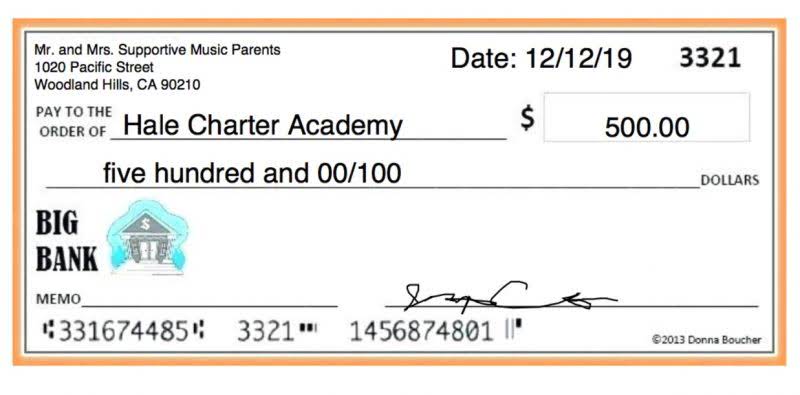
A dependent is a qualifying child or relative who relies on you for financial support. To claim a dependent for tax credits or deductions, the dependent must meet specific requirements. The rules for filing a tax return change when your dependent child receives income from sources other than employment, such as investment income including interest and dividend payments. When the 2023 total of this type of income exceeds $1,250, then a return needs to be filed for your dependent child.
File anyway, even if it isn’t required
- They would pass both prongs of the test and would need to file a separate return.
- Not all lenders use Experian credit files, and not all lenders use scores impacted by Experian Boost®.
- If you do not pay your taxes, you will be charged a penalty and owe interest on any unpaid balance.
- Even if a minor’s income is less than the minimum threshold, the IRS sets other conditions that may require a tax return to be filed.
- Under Internal Revenue Code section 7526, the IRS awards matching grants to qualifying organizations to develop, expand or maintain an LITC.
The IRS is clear on filing income tax under 18 – if you earn income, you can be taxed on it. If you determine you need to file taxes, complete Form 1040 or Form 1040EZ, a quicker, simpler version of the 1040 for taxpayers without dependents. Not everyone chooses to file the 1040EZ and both come with an instruction booklet that gives you step-by-step instructions for filling out the forms. If necessary, reference any 1099-INTs and 1099-DIVs for your unearned income.
The Ultimate Tax Guide for Students
In order to claim a newborn child as a dependent, state or local law must treat the child as having been born alive, and there must be proof of a live birth shown by an official document like a birth certificate. Due to these requirements, you may not claim a stillborn child as a dependent. Depending on your financial situation, you may find some financial relief if you can’t afford an IRS payment plan through the Hardship Assistance program, Allec said. Not doing so can result in even bigger problems than avoiding payment, Allec said. Our team of tax experts will help you understand your taxes and make sure you get the most out of your return.
- However, the Internal Revenue Service (IRS) generally requires you to file a tax return once your income exceeds a certain limit for the year.
- Brantley started his full-time writing career in 2012 and has written for a variety of financial websites, including insurance, real estate, loan and investment sites.
- If you’re an employee, the government automatically takes the taxes you owe out of each paycheck.
- You don’t need to claim your child’s income on your tax return, but the IRS deems parents or guardians responsible when minors can’t file on their own.
What Is the Standard Deduction for a Child?

Having a simple checklist to follow can make the tax-filing process easier. You’ll also need to pay FICA tax, sometimes called the payroll tax. If you are a W-2 employee, your employer will pay for half of your FICA tax, making your Social Security tax rate 6.2% and your Medicare tax rate 1.45%. More information about LITCs and the work they do to represent, educate and advocate on behalf of low-income and ESL taxpayers is available in IRS Publication 5066, 2023 LITC Program ReportPDF. A short video about the LITC Program is also available on the Taxpayer Advocate Service YouTube channel. The IRS is particularly interested in receiving applications from organizations that provide services in these underserved geographic areas.

TURBOTAX ONLINE/MOBILE PRICING:
As a dependent, you will need to file taxes if you received over $1,100 of unearned income, $12,550 of earned income, or a gross income that was greater than $1,100 or $350 plus your earned income up to $12,200. If she has earned enough income to be required to file a return, then it must be reported on her own return. A student who files as her own dependent could also get the last $1,400 of pandemic stimulus money, which was sent out as an advance tax credit based on IRS information can you file taxes at 18 from 2019 and 2020. But that’s only if her parents didn’t already receive that money on her behalf—a detail that both the IRS and accountants are likely to check. This tax credit is available for use by American taxpayers who have a qualifying dependent child under the age of 17 with a Social Security number. A Form 1040 return with limited credits is one that’s filed using IRS Form 1040 only (with the exception of the specific covered situations described below).

What are some tax credits for young Canadians under 25?
If you’re a teen working a part-time job, summer job, or side hustle, it’s important to know when you’re subject to tax and how you’re expected to pay it. Under Internal Revenue Code section 7526, the IRS awards matching grants to qualifying organizations to develop, expand or maintain an LITC. For every dollar of funding awarded by the IRS, an LITC must have a dollar of match. An LITC must provide services for free or for no more than a nominal fee (except for reimbursement of actual costs incurred). If you can be claimed as a dependent by another person, you can’t claim anyone else as a dependent.
What Happens If You Don’t Pay Taxes? – NerdWallet
What Happens If You Don’t Pay Taxes?.
Posted: Mon, 15 Apr 2024 07:00:00 GMT [source]
Why should I file my first return with TaxAct?
- Questions about the LITC Program or the grant application process can be addressed to the LITC Program Office by email at Alternatively, you may contact Karen Tober by email at
- When your child starts to earn their own money, start talking about taxes right away.
- For instance, a teen who moves out of their parent’s home and lives with a grandparent or an aunt could be claimed as a dependent by one of these other relatives if they meet the rules above.
- Investment income is reported on Form 1099 as well, but the form you get will depend on what kind of income it is.
- However, many adult children are happy to let their parents claim them as a tradeoff for their parents’ support while they are in college or still receiving most of their financial support from family.
Recent Comments